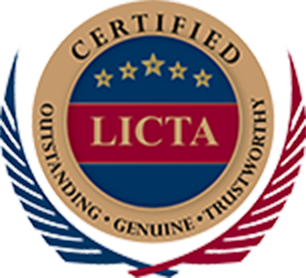Review of Assessment through Application for Relief in Malaysia
-
Under what circumstances is a reduced assessment allowed?
1.1 Relief Application for Errors or Mistakes (Section 131 of the Income Tax Act 1967)
The taxpayer may apply for relief under section 131 of the ITA in case of an error or mistake in the income tax return. The error can be a :-
– Error or omission, such as failure to deduct an allowable expense
– Error or omission such as computational or arithmetical error
– Error arising from a misunderstanding of the laws
– Error statement of fact
– Omission made not by design but by mischanceThe conditions related to application for relief under subsections 131 of the ITA are:
a) Application for relief will not be considered if the ITRF is made in accordance with the known stand, rules and practices of the Director General of Inland Revenue (DGIR) prevailing at the time when the assessment is made.
b) The taxpayer must pay all taxes where assessment have been made for the relevant YA.
c) The taxpayer must make a written application by way of a letter or Form CP15C to the DGIR within five (5) years after the end of the YA in which the assessment is deemed.
1.2 Relief Application of other than Error or Mistake (Section 131A of the Income Tax Act 1967):-
A taxpayer may make an application for relief under s.131A of the ITA in respect of other error or mistake in the income tax return made by him. The relief application of other than error or mistake cases is allowed:-
– Any exemption, relief, remission, allowance or deduction granted under ITA or any written law gazette after the YA in which the tax return is furnished *
– Approval for any exemption, relief, remission, allowance or deduction is granted after the YA in which the tax return is furnished **
– A deduction not allowed in respect of payment not due to be paid under withholding tax provisions on the day the income tax return is furnished *The period of time for application for the relief is as follows:
i)*Appeal within five (5) years after the end of the year in which the exemption, relief, remission, allowance or deduction is published in the Gazette, or the approval is granted, whichever is later; and
ii)**Appeal within one (1) year after the end of the year in which payment is made.
1.3 Relief Application of in respect of Non-Taxable Case (Subsection 97A(5) of the Income Tax Act 1967)
A person who has furnished the ITRF to the DGIR in accordance with the provision of subsection 77(1) or 77A(1) of the ITA and has no chargeable income for that YA may make a written application for relief to the DGIR:- To amend the ITRF in the event of any error or mistake (as specified in subparagraph 1.1) *;or
- To amend the ITRF in the event of other than in respect of error or mistake, as specified in subparagraph 1.2.2**
The period of time for application for the relief is as follows:
i) *Within six (6) months from the date the ITRF is furnished; and
ii) **Within the period of time for application as specified in subparagraph 1.2.
-
What is the relief application procedure?
– An application for relief can be made either by a letter or Form CP15C by stating the reasons in detail relating to the application.
-
What happens if the relief application is approved by Inland Revenue Board Malaysia (IRBM)?
– If the application for relief is approved by the DGIR, the assessment will be amended and a reduced assessment will be issued.
-
What happens if the relief application is rejected by Inland Revenue Board Malaysia (IRBM)?
– If the letter or Form CP15C is not filled with the correct details, the application shall be returned to the taxpayer and the taxpayer is required to submit a new application for relief.If the application for relief is rejected by the DGIR, a rejection letter together with the grounds of rejection will be issued to the taxpayer.
-
What are my options if I disagree with the relief application rejection decision made by IRB ?
– If the taxpayer disagrees with the rejection decision, he/she may request via a letter to the DGIR to send the application for relief (which was submitted earlier to the Special Commissioners of Income Tax (SCIT)) within six (6) months from the date of the rejection. The DGIR shall forward the application to the SCIT within three (3) months from the date of receipt of the request.In cases where a deemed assessment on ITRF or amended ITRF is made in accordance with the known stand, rules and practices of the DGIR prevailing at the time, the taxpayer’s application for relief under subsections 97A(5), sections 131 and 131A of the ITA will not be considered even though the taxpayer can prove that there is an error or mistake unless the error is arithmetical or computational.
Reference : Public Ruling No.7/2020
ANC Group – Your Personal Tax Advisor
Tax consulting is the core service of ANC Group. Our tax professionals provide clients with comprehensive tax support and guidance. We offer tax consulting and compliance services for expatriates, entrepreneurs, and listed and non-listed companies.
Our tax consulting services include business tax, transaction tax, personal tax, and corporate income tax. We don’t just guide you in interpreting and applying complicated taxation rules, but to explore new opportunities and business trends.
We keep you abreast with Malaysia tax updates and any changes in the local regulations.
We work closely with industry specialists, authorities, and associated professionals within ANC Group to provide the best-in-class integrated tax planning solutions. ANC specialists coordinate the accounting and taxation services to bring your business to success.
[vc_btn title=”Get a Quote” color=”orange” size=”lg” link=”url:%23Footer|title:Footer||” el_id=”buttonGetQuoteTaxService”]









